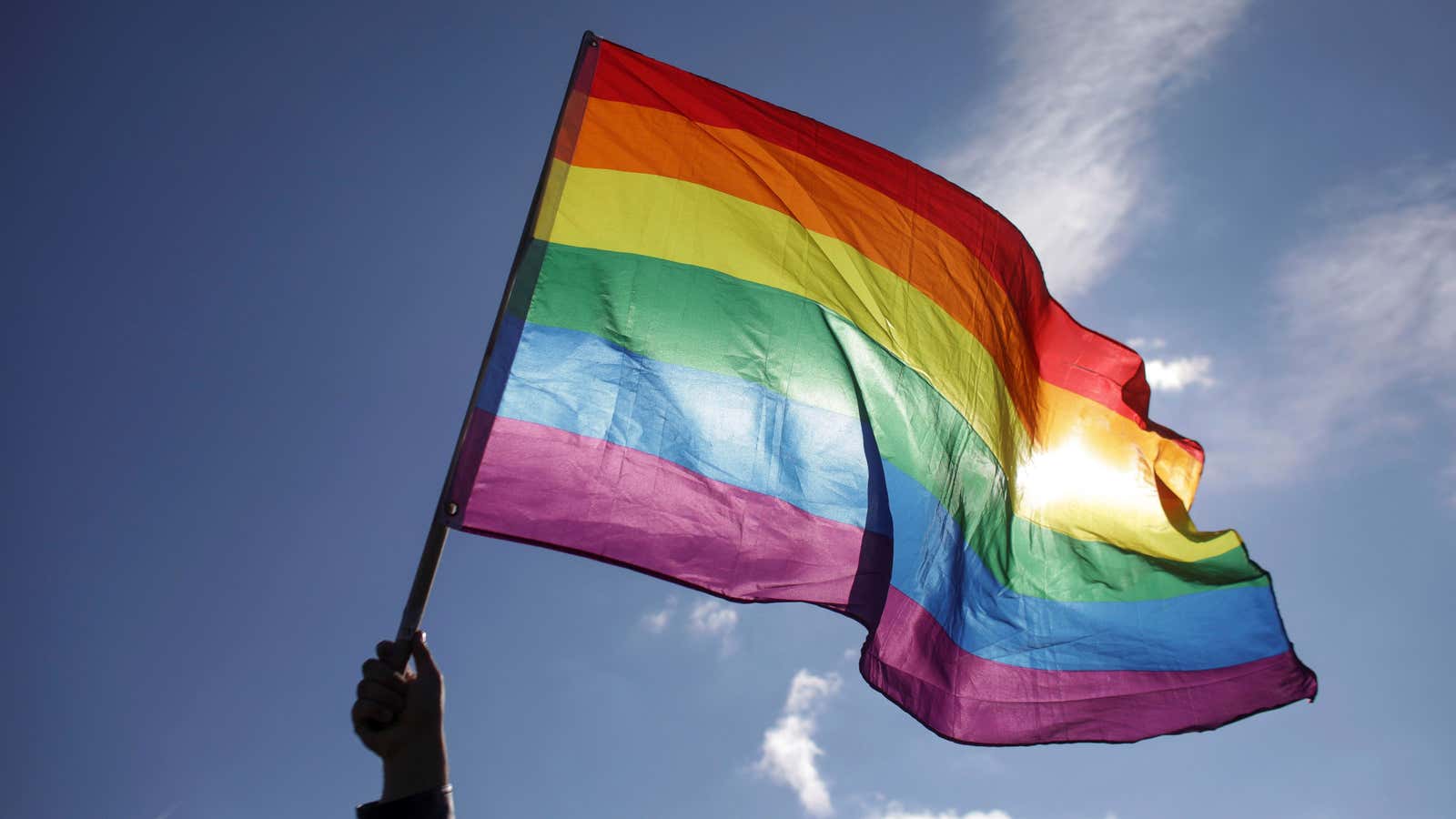No excuses, no exemptions, no opt-outs: Scottish schools will soon be required to put LGBTQ history on the curriculum, after the country’s ministers accepted the full recommendations of the Time for Inclusive Education (TIE) campaign. Students will learn about the history of LGBTQ equality, how to tackle homophobia and transphobia, and the nuances of LGBTQ identity, in all its forms, going beyond the LGBT-inclusion to be introduced in sex education in Wales.
It’s a world first—and one that would have seemed all but impossible just a few decades ago. For 13 years, from 1988, Scottish teachers who even mentioned homosexuality in the classroom risked running afoul of Margaret Thatcher’s controversial Section 28 law. The legislation banned the “promotion” of homosexuality by local authorities and in schools across the UK. Teachers could not include books or films with gay themes on syllabuses or in school libraries, address homosexuality in the classroom, or indeed do anything which might suggest that homosexuality was “acceptable… as a pretended family relationship.”
The policy was met with tremendous protest: tens of thousands of people marching through London and Manchester; lesbians “storming the BBC” to protest about it; fight songs by Boy George, Chumbawamba, and Morrissey. Ian MacKellen came out as gay to fight it as part of the Arts Lobby alongside such luminaries as Stephen Fry, Rupert Everett, and Judi Dench.
But it took until 2001 for the policy to be repealed in Scotland, with the rest of the UK following two years later. Today many of the same attitudes underpinning the law persist. A study for TIE found that nine out of 10 LGBTI Scots had experienced homophobia at school, while 27% reported they had attempted suicide after being bullied. Scottish students showed “little understanding” of prejudice against people with “variations of sex characteristics and intersex bodies.”
This curriculum change may go some way to changing that—and to revealing the long narrative of LGBTQ oppression and liberation in the United Kingdom and elsewhere. “This is a monumental victory for our campaign, and a historic moment for our country,”Jordan Daly, the co-founder of TIE, told the Guardian. “In a time of global uncertainty, this sends a strong and clear message to LGBTI young people that they are valued here in Scotland.”
